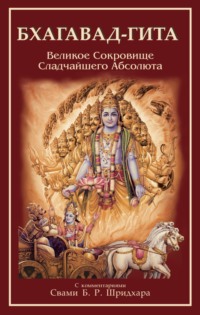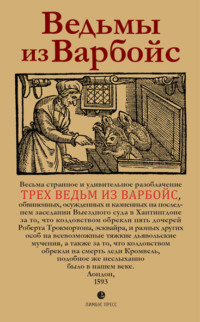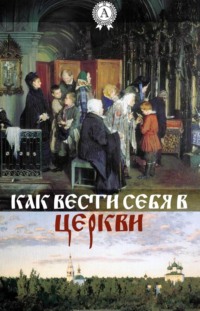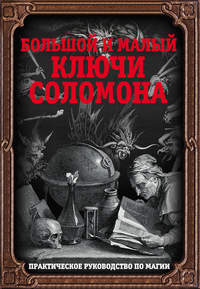 полная версия
полная версияThe Anglo-Saxon Chronicle
A.D. 861. This year died St. Swithun, bishop.
A.D. 865. This year sat the heathen army in the isle of Thanet, and made peace with the men of Kent, who promised money therewith; but under the security of peace, and the promise of money, the army in the night stole up the country, and overran all Kent eastward.
A.D. 866. This year Ethered, 69 brother of Ethelbert, took to the West-Saxon government; and the same year came a large heathen army into England, and fixed their winter-quarters in East-Anglia, where they were soon horsed; and the inhabitants made peace with them.
A.D. 867. This year the army went from the East-Angles over the mouth of the Humber to the Northumbrians, as far as York. And there was much dissension in that nation among themselves; they had deposed their king Osbert, and had admitted Aella, who had no natural claim. Late in the year, however, they returned to their allegiance, and they were now fighting against the common enemy; having collected a vast force, with which they fought the army at York; and breaking open the town, some of them entered in. Then was there an immense slaughter of the Northumbrians, some within and some without; and both the kings were slain on the spot. The survivors made peace with the army. The same year died Bishop Ealstan, who had the bishopric of Sherborn fifty winters, and his body lies in the town.
A.D. 868. This year the same army went into Mercia to Nottingham, and there fixed their winter-quarters; and Burhred, king of the Mercians, with his council, besought Ethered, king of the West-Saxons, and Alfred, his brother; that they would assist them in fighting against the army. And they went with the West-Saxon army into Mercia as far as Nottingham, and there meeting the army on the works, they beset them within. But there was no heavy fight; for the Mercians made peace with the army.
A.D. 869. This year the army went back to York, and sat there a year.
A.D. 870. This year the army rode over Mercia into East-Anglia, and there fixed their winter-quarters at Thetford. And in the winter King Edmund fought with them; but the Danes gained the victory, and slew the king; whereupon they overran all that land, and destroyed all the monasteries to which they came. The names of the leaders who slew the king were Hingwar and Hubba. At the same time came they to Medhamsted, burning and breaking, and slaying abbot and monks, and all that they there found. They made such havoc there, that a monastery, which was before full rich, was now reduced to nothing. The same year died Archbishop Ceolnoth; and Ethered, Bishop of Witshire, was chosen Archbishop of Canterbury.
A.D. 871. This year came the army to Reading in Wessex; and in the course of three nights after rode two earls up, who were met by Alderman Ethelwulf at Englefield; where he fought with them, and obtained the victory. There one of them was slain, whose name was Sidrac. About four nights after this, King Ethered and Alfred his brother led their main army to Reading, where they fought with the enemy; and there was much slaughter on either hand, Alderman Ethelwulf being among the skain; but the Danes kept possession of the field. And about four nights after this, King Ethered and Alfred his brother fought with all the army on Ashdown, and the Danes were overcome. They had two heathen kings, Bagsac and Healfden, and many earls; and they were in two divisions; in one of which were Bagsac and Healfden, the heathen kings, and in the other were the earls. King Ethered therefore fought with the troops of the kings, and there was King Bagsac slain; and Alfred his brother fought with the troops of the earls, and there were slain Earl Sidrac the elder, Earl Sidrac the younger, Earl Osbern, Earl Frene, and Earl Harold. They put both the troops to flight; there were many thousands of the slain, and they continued fighting till night. Within a fortnight of this, King Ethered and Alfred his brother fought with the army at Basing; and there the Danes had the victory. About two months after this, King Ethered and Alfred his brother fought with the army at Marden. They were in two divisions; and they put them both to flight, enjoying the victory for some time during the day; and there was much slaughter on either hand; but the Danes became masters of the field; and there was slain Bishop Heahmund, with many other good men. After this fight came a vast army in the summer to Reading. And after the Easter of this year died King Ethered. He reigned five years, and his body lies at Winburn-minster. Then Alfred, his brother, the son of Ethelwulf, took to the kingdom of Wessex. And within a month of this, King Alfred fought against all the Army with a small force at Wilton, and long pursued them during the day; but the Danes got possession of the field. This year were nine general battles fought with the army in the kingdom south of the Thames; besides those skirmishes, in which Alfred the king's brother, and every single alderman, and the thanes of the king, oft rode against them; which were accounted nothing. This year also were slain nine earls, and one king; and the same year the West-Saxons made peace with the army.
((A.D. 871. And the Danish-men were overcome; and they had two heathen kings, Bagsac and Halfdene, and many earls; and there was King Bagsac slain, and these earls; Sidrac the elder, and also Sidrac the younger, Osbern, Frene, and Harold; and the army was put to flight.))
A.D. 872. This year went the army to London from Reading, and there chose their winter-quarters. Then the Mercians made peace with the army.
A.D. 873. This year went the army against the Northumbrians, and fixed their winter-quarters at Torksey in Lindsey. And the Mercians again made peace with the army.
A.D. 874. This year went the army from Lindsey to Repton, and there took up their winter-quarters, drove the king, Burhred, over sea, when he had reigned about two and twenty winters, and subdued all that land. He then went to Rome, and there remained to the end of his life. And his body lies in the church of Sancta Maria, in the school of the English nation. And the same year they gave Ceolwulf, an unwise king's thane, the Mercian kingdom to hold; and he swore oaths to them, and gave hostages, that it should be ready for them on whatever day they would have it; and he would be ready with himself, and with all those that would remain with him, at the service of the army.
A.D. 875. This year went the army from Repton; and Healfden advanced with some of the army against the Northumbrians, and fixed his winter-quarters by the river Tine. The army then subdued that land, and oft invaded the Picts and the Strathclydwallians. Meanwhile the three kings, Guthrum, Oskytel, and Anwind, went from Repton to Cambridge with a vast army, and sat there one year. This summer King Alfred went out to sea with an armed fleet, and fought with seven ship-rovers, one of whom he took, and dispersed the others.
A.D. 876. This year Rolla penetrated Normandy with his army; and he reigned fifty winters. And this year the army stole into Wareham, a fort of the West-Saxons. The king afterwards made peace with them; and they gave him as hostages those who were worthiest in the army; and swore with oaths on the holy bracelet, which they would not before to any nation, that they would readily go out of his kingdom. Then, under colour of this, their cavalry stole by night into Exeter. The same year Healfden divided the land of the Northumbrians; so that they became afterwards their harrowers and plowers.
((A.D. 876. And in this same year the army of the Danes in England swore oaths to King Alfred upon the holy ring, which before they would not do to any nation; and they delivered to the king hostages from among the most distinguished men of the army, that they would speedily depart from his kingdom; and that by night they broke.))
A.D. 877. This year came the Danish army into Exeter from Wareham; whilst the navy sailed west about, until they met with a great mist at sea, and there perished one hundred and twenty ships at Swanwich. 70 Meanwhile King Alfred with his army rode after the cavalry as far as Exeter; but he could not overtake them before their arrival in the fortress, where they could not be come at. There they gave him as many hostages as he required, swearing with solemn oaths to observe the strictest amity. In the harvest the army entered Mercia; some of which they divided among them, and some they gave to Ceolwulf.
A.D. 878. This year about mid-winter, after twelfth-night, the Danish army stole out to Chippenham, and rode over the land of the West-Saxons; where they settled, and drove many of the people over sea; and of the rest the greatest part they rode down, and subdued to their will;—ALL BUT ALFRED THE KING. He, with a little band, uneasily sought the woods and fastnesses of the moors. And in the winter of this same year the brother of Ingwar and Healfden landed in Wessex, in Devonshire, with three and twenty ships, and there was he slain, and eight hundred men with him, and forty of his army. There also was taken the war-flag, which they called the RAVEN. In the Easter of this year King Alfred with his little force raised a work at Athelney; from which he assailed the army, assisted by that part of Somersetshire which was nighest to it. Then, in the seventh week after Easter, he rode to Brixton by the eastern side of Selwood; and there came out to meet him all the people of Somersersetshire, and Wiltshire, and that part of Hampshire which is on this side of the sea; and they rejoiced to see him. Then within one night he went from this retreat to Hey; and within one night after he proceeded to Heddington; and there fought with all the army, and put them to flight, riding after them as far as the fortress, where he remained a fortnight. Then the army gave him hostages with many oaths, that they would go out of his kingdom. They told him also, that their king would receive baptism. And they acted accordingly; for in the course of three weeks after, King Guthrum, attended by some thirty of the worthiest men that were in the army, came to him at Aller, which is near Athelney, and there the king became his sponsor in baptism; and his crisom-leasing was at Wedmor. He was there twelve nights with the king, who honoured him and his attendants with many presents.
A.D. 879. This year went the army from Chippenham to Cirencester, and sat there a year. The same year assembled a band of pirates, and sat at Fulham by the Thames. The same year also the sun was eclipsed one hour of the day.
A.D. 880. This year went the army from Cirencester into East-Anglia, where they settled, and divided the land. The same year went the army over sea, that before sat at Fulham, to Ghent in Frankland, and sat there a year.
A.D. 881. This year went the army higher up into Frankland, and the Franks fought with them; and there was the army horsed after the battle.
A.D. 882. This year went the army up along the Maese far into Frankland, and there sat a year; and the same year went King Alfred out to sea with a fleet; and fought with four ship-rovers of the Danes, and took two of their ships; wherein all the men were slain; and the other two surrendered; but the men were severely cut and wounded ere they surrendered.
A.D. 883. This year went the army up the Scheldt to Conde, and there sat a year. And Pope Marinus sent King Alfred the "lignum Domini". The same year led Sighelm and Athelstan to Rome the alms which King Alfred ordered thither, and also in India to St. Thomas and to St. Bartholomew. Then they sat against the army at London; and there, with the favour of God, they were very successful after the performance of their vows.
A.D. 884. This year went the army up the Somne to Amiens, and there remained a year. This year died the benevolent Bishop Athelwold.
A.D. 885. This year separated the before-mentioned army in two; one part east, another to Rochester. This city they surrounded, and wrought another fortress around themselves. The people, however, defended the city, until King Alfred came out with his army. Then went the enemy to their ships, and forsook their work. There were they provided with horses; and soon after, in the same summer, they went over sea again. The same year sent King Alfred a fleet from Kent into East-Anglia. As soon as they came to Stourmouth, there met them sixteen ships of the pirates. And they fought with them, took all the ships, and slew the men. As they returned homeward with their booty, they met a large fleet of the pirates, and fought with them the same day; but the Danes had the victory. The same year, ere midwinter, died Charles, king of the Franks. He was slain by a boar; and one year before his brother died, who had also the Western kingdom. They were both the sons of Louis, who also had the Western kingdom, and died the same year that the sun was eclipsed. He was the son of that Charles whose daughter Ethelwulf, king of the West-Saxons, had to wife. And the same year collected a great fleet against Old-Saxony; and there was a great fight twice in the year, and the Saxons had the victory. There were the Frieslanders with them. And the same year succeeded Charles to the Western kingdom, and to all the territory this side of the Mediterranean and beyond, as his great-grandfather held it, except the Lidwiccians. The said Charles was the son of Louis, who was the brother of that Charles who was the father of Judith, whom Ethelwulf, king of the West-Saxons, married. They were the sons of Louis, who was the son of the elder Charles, who was the son of Pepin. The same year died the good Pope Martin, who freed the English school at the request of Alfred, king of the West-Saxons. And he sent him great gifts in relics, and a part of the rood on which Christ suffered. And the same year the army in East-Anglia brake the truce with King Alfred.
A.D. 886. This year went the army back again to the west, that before were bent eastward; and proceeding upwards along the Seine, fixed their winter-quarters in the city of Paris. 71 The same year also King Alfred fortified the city of London; and the whole English nation turned to him, except that part of it which was held captive by the Danes. He then committed the city to the care of Alderman Ethered, to hold it under him.
A.D. 887. This year the army advanced beyond the bridge at Paris; 72 and then upwards, along the Seine, to the Marne. Then upwards on the Marne as far as Chezy; and in their two stations, there and on the Yonne, they abode two winters. This same year died Charles, king of the Franks. Arnulf, his brother's son, had six weeks before his death bereft him of his kingdom; which was now divided into five portions, and five kings were consecrated thereto. This, however, was done with the consent of Arnulf; and they agreed that they should hold in subjection to him; because none of them had by birth any claim on the father's side, except him alone. Arnulf, therefore, dwelt in the country eastward of the Rhine; Rodulf took to the middle district; Oda to the western; whilst Berenger and Witha became masters of Lombardy and the Cisalpine territory. But they held their dominion in great discord; fought two general battles, and frequently overran the country in partial encounters, displacing each other several times. The same year also, in which the Danish army advanced beyond the bridge at Paris, Alderman Ethelhelm led the alms of the West-Saxons and of King Alfred to Rome.
A.D. 888. This year Alderman Beeke conducted the alms of the West-Saxons and of King Alfred to Rome; but Queen Ethelswith, who was the sister of King Alfred, died on the way to Rome; and her body lies at Pavia. The same year also Ethered, Archbishop of Canterbury and Alderman Ethelwold, died in one month.
A.D. 889. This year there was no journey to Rome; except that King Alfred sent two messengers with letters.
A.D. 890. This year Abbot Bernhelm conducted the alms of the West-Saxons and of King Alfred to Rome; and Guthrum, king of the Northern men, departed this life, whose baptismal name was Athelstan. He was the godson of King Alfred; and he abode among the East-Angles, where he first established a settlement. The same year also went the army from the Seine to Saint Lo, which is between the Bretons and the Franks; where the Bretons fought with them, obtained the victory, and drove them out into a river, in which many of them were drowned. This year also was Plegmund chosen by God and all his saints to the archbishopric in Canterbury.
A.D. 891. This year went the army eastward; and King Arnulf fought with the land-force, ere the ships arrived, in conjunction with the eastern Franks, and Saxons, and Bavarians, and put them to flight. And three Scots came to King Alfred in a boat without any oars from Ireland; whence they stole away, because they would live in a state of pilgrimage, for the love of God, they recked not where. The boat in which they came was made of two hides and a half; and they took with them provisions for seven nights; and within seven nights they came to land in Cornwall, and soon after went to King Alfred. They were thus named: Dubslane, and Macbeth, and Maelinmun. And Swinney, the best teacher that was among the Scots, departed this life. And the same year after Easter, about the gang-days or before, appeared the star that men in book-Latin call "cometa": some men say that in English it may be termed "hairy star"; for that there standeth off from it a long gleam of light, whilom on one side, whilom on each.
A.D. 893. This year went the large army, that we before spoke about, back from the eastern district westward to Bologne; and there were shipped; so that they transported themselves over at one time with their horses withal. And they came up with two hundred and fifty ships into the mouth of the Limne, which is in East-Kent, at the east end of the vast wood that we call Andred. This wood is in length, east and west, one hundred and twenty miles, or longer, and thirty miles broad. The river that we before spoke about lieth out of the weald. On this river they towed up their ships as far as the weald, four miles from the mouth outwards; and there destroyed a fort within the fen, whereon sat a few churls, and which was hastily wrought. Soon after this came Hasten up with eighty ships into the mouth of the Thames, and wrought him there a work at Milton, and the other army at Appledore.
A.D. 894. This year, that was about twelve months after they had wrought a work in the eastern district, the Northumbrians and East-Angles had given oaths to King Alfred, and the East-Angles six hostages; nevertheless, contrary to the truce, as oft as the other plunderers went out with all their army, then went they also, either with them, or in a separate division. Upon this King Alfred gathered his army, and advanced, so that he encamped between the two armies at the highest point he could find defended by wood and by water, that he might reach either, if they would seek any field. Then went they forth in quest of the wealds, in troops and companies, wheresoever the country was defenceless. But they were also sought after most days by other companies, either by day or by night, both from the army and also from the towns. The king had divided his army into two parts; so that they were always half at home, half out; besides the men that should maintain the towns. The army came not all out of their stations more than twice; once, when they first came to land, ere the forces were collected, and again, when they wished to depart from their stations. They had now seized much booty, and would ferry it northward over Thames into Essex, to meet their ships. But the army rode before them, fought with them at Farnham, routed their forces, and there arrested the booty. And they flew over Thames without any ford, then up by the Colne on an island. Then the king's forces beset them without as long as they had food; but they had their time set, and their meat noted. And the king was advancing thitherwards on his march with the division that accompanied him. But while he was advancing thitherwards, the other force was returning homewards. The Danes, however, still remained behind; for their king was wounded in the fight, so that they could not carry him. Then collected together those that dwell in Northumbria and East-Anglia about a hundred ships, and went south about; and with some forty more went north about, and besieged a fort in Devonshire by the north sea; and those who went south about beset Exeter. When the king heard that, then went he west towards Exeter with all his force, except a very considerable part of the eastern army, who advanced till they came to London; and there being joined by the citizens and the reinforcements that came from the west, they went east to Barnfleet. Hasten was there with his gang, who before were stationed at Milton, and also the main army had come thither, that sat before in the mouth of the Limne at Appledore. Hasten had formerly constructed that work at Barnfleet, and was then gone out on plunder, the main army being at home. Then came the king's troops, and routed the enemy, broke down the work, took all that was therein money, women, and children and brought all to London. And all the ships they either broke to pieces, or burned, or brought to London or to Rochester. And Hasten's wife and her two sons they brought to the king, who returned them to him, because one of them was his godson, and the other Alderman Ethered's. They had adopted them ere Hasten came to Bamfleet; when he had given them hostages and oaths, and the king had also given him many presents; as he did also then, when he returned the child and the wife. And as soon as they came to Bamfleet, and the work was built, then plundered he in the same quarter of his kingdom that Ethered his compeer should have held; and at another time he was plundering in the same district when his work was destroyed. The king then went westward with the army toward Exeter, as I before said, and the army had beset the city; but whilst he was gone they went to their ships. Whilst he was thus busied there with the army, in the west, the marauding parties were both gathered together at Shobury in Essex, and there built a fortress. Then they both went together up by the Thames, and a great concourse joined them, both from the East-Angles and from the Northumbrians. They then advanced upward by the Thames, till they arrived near the Severn. Then they proceeded upward by the Severn. Meanwhile assembled Alderman Ethered, Alderman Ethelm, Alderman Ethelnoth, and the king's thanes, who were employed at home at the works, from every town east of the Parret, as well as west of Selwood, and from the parts east and also north of the Thames and west of the Severn, and also some part of North-Wales. When they were all collected together, they overtook the rear of the enemy at Buttington on the banks of the Severn, and there beset them without on each side in a fortress. When they had sat there many weeks on both sides of the water, and the king meanwhile was in Devonshire westward with the naval force, then were the enemy weighed down with famine. They had devoured the greater part of their horses; and the rest had perished with hunger. Then went they out to the men that sat on the eastern side of the river, and fought with them; but the Christians had the victory. And there Ordhelm, the king's thane, was slain; and also many other king's thanes; and of the Danes there were many slain, and that part of them that came away escaped only by flight. As soon as they came into Essex to their fortress, and to their ships, then gathered the remnant again in East-Anglia and from the Northumbrians a great force before winter, and having committed their wives and their ships and their booty to the East-Angles, they marched on the stretch by day and night, till they arrived at a western city in Wirheal that is called Chester. There the army could not overtake them ere they arrived within the work: they beset the work though, without, some two days, took all the cattle that was thereabout, slew the men whom they could overtake without the work, and all the corn they either burned or consumed with their horses every evening. That was about a twelvemonth since they first came hither over sea.
A.D. 895. Soon after that, in this year, went the army from Wirheal into North-Wales; for they could not remain there, because they were stripped both of the cattle and the corn that they had acquired by plunder. When they went again out of North-Wales with the booty they had acquired there, they marched over Northumberland and East-Anglia, so that the king's army could not reach them till they came into Essex eastward, on an island that is out at sea, called Mersey. And as the army returned homeward that had beset Exeter, they went up plundering in Sussex nigh Chichester; but the townsmen put them to flight, and slew many hundreds of them, and took some of their ships. Then, in the same year, before winter, the Danes, who abode in Mersey, towed their ships up on the Thames, and thence up the Lea. That was about two years after that they came hither over sea.









